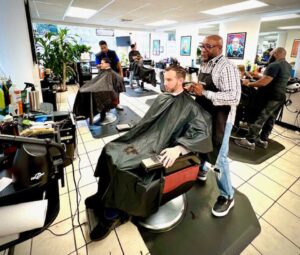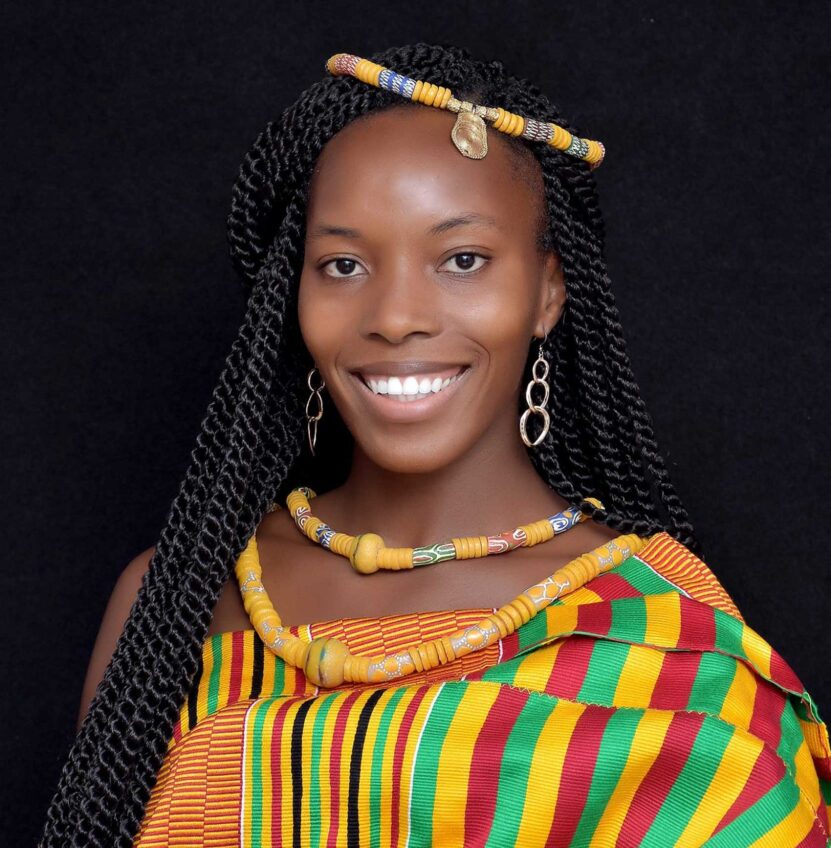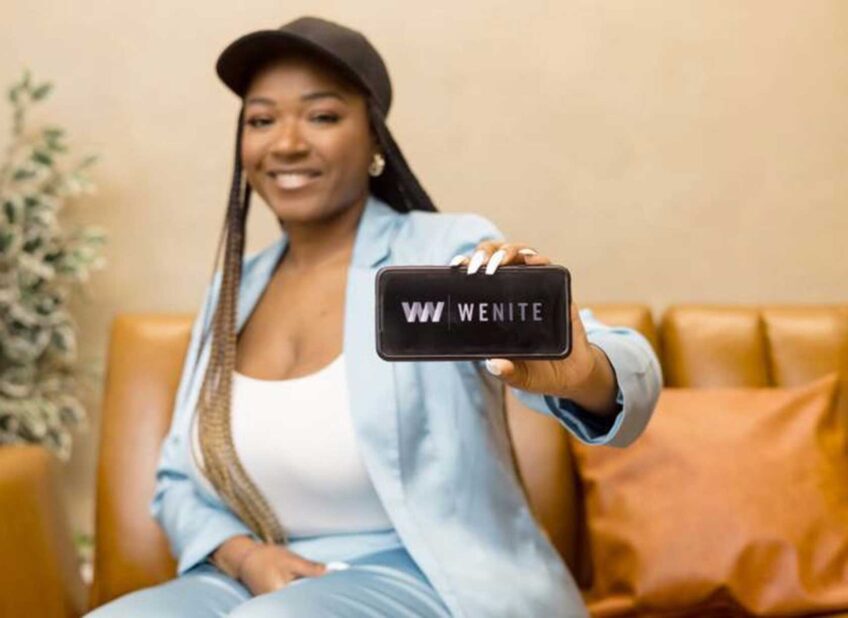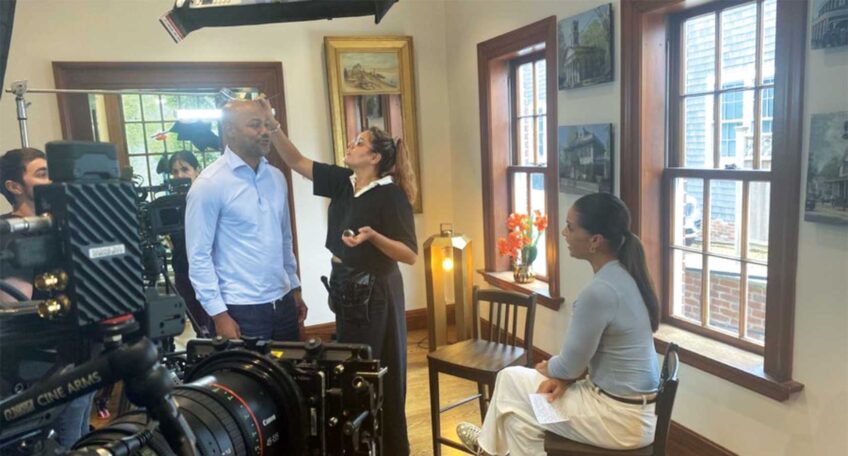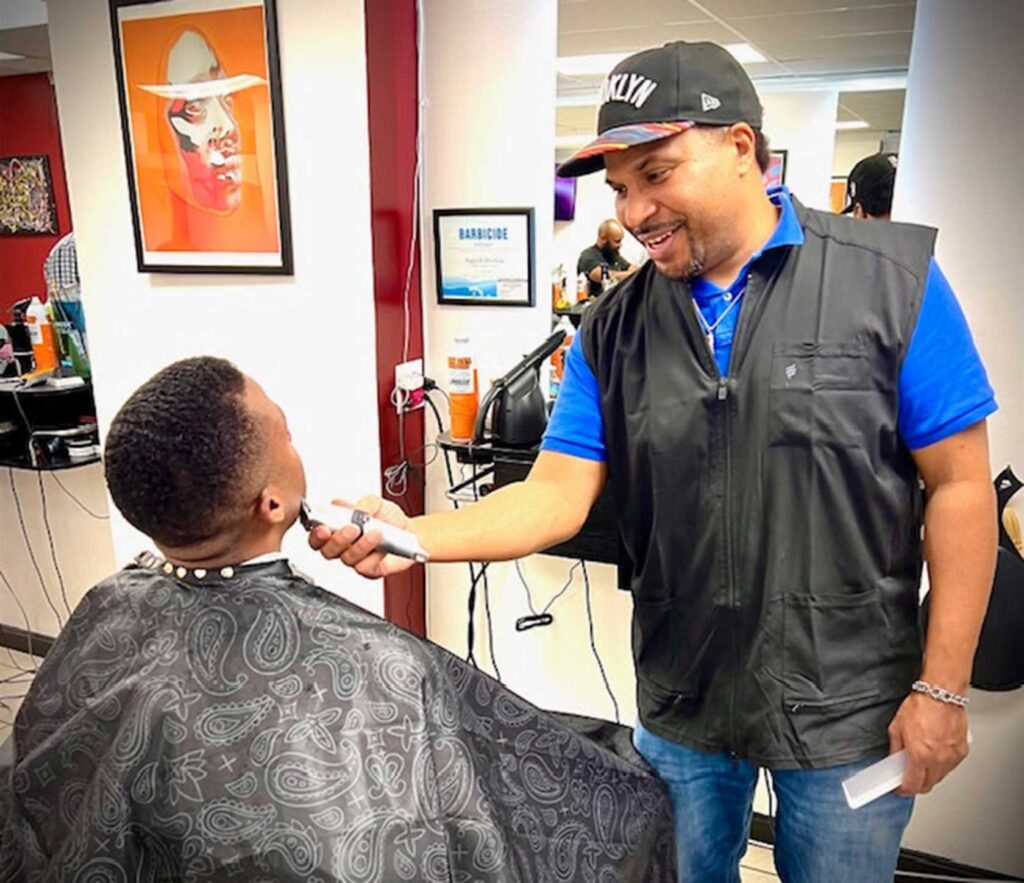
Banner Business Sponsored by The Boston Foundation
The Omolade family is committed to serving the city of Watertown, one haircut at a time.
Not even the COVID-19 pandemic was going to stand in their way, as brothers Omar and Shea opened their barbershop, 1st Yard Barbers, on August 15, 2020. The brothers bring deep expertise to their barbershop, as Omar has operated as a master barber for 32 years and Shea for 29.
Along with serving the community through hair care, the brothers are also serial entrepreneurs. Before opening 1st Yard Barbers, Omar owned a hair salon, barber spa, consulting business and, most recently, a cleaning company; while Shea owned a barber spa and worked in the Newton/Watertown area for eight years. Seven months ago, Omar also opened a convenience store, 1st Yard Market, which is located next door to their barbershop.
What sets their barbershop apart is their focus on multicultural clientele and the active role of the Omolade family in running the business.
While Omar and Shea own the barbershop, other family members work there as well, including Omar’s son and their cousin. Their brother Kip Omolade’s artwork is displayed in the shop, which helps them to create “a unique space that embraces the legacy of this family’s diversity, creativity and standard of excellence.”
Omar spoke about some of the top services 1st Yard Barbers offers to their clients.
“So we’re pretty unique because we’re one of the only barber shops that opens at 6:30 a.m., so our best service is our timing,” he said. “We make sure that people can actually get in and get out. Most of the people are more business oriented. They have things to do. So we do standard cuts, regular cuts, and hot shaves. We color greys and do all stuff like that.”
The brothers are intentional about focusing on multicultural clients and they recognize the importance of having a safe space like their barbershop for people of color.
“I have a really unique way of thinking,” said Omar. “I really feel that when you separate yourself in business and make it just one culture, that you miss out on a lot. It wasn’t meant to be like, ‘I’m going out to make a multicultural business.’ I just went out to give a service to anyone who wanted to use it, and it became multicultural because of the attitude and the respect for the client.”
Omar also shared what it’s like to be working together as a family at the barbershop.
“When you can stand with your younger brother and your oldest son, watch them strive and be able to sustain in Boston, Massachusetts, with their families, it’s a sense of pride.” he said.
“The real joy is watching a mother bring [her] kid in here and know that it’s a comfortable environment. … A barbershop can be an uncomfortable situation if you’re not paying attention to what you talk about, what you listen to,” he added.
Omar said they faced obstacles in opening their business during the pandemic and overcame them.
“It was a little bit of a challenge getting it open, because [city regulators] made new [barbering regulations]. So have a positive attitude in life and [don’t] let the little things weigh on you because money is always going to weigh on you at some point, but [don’t] let it really drag you down,” he said. “Always being a kind person — being kind to people comes with such a satisfying reward to your soul. That’s how I [overcame] it,” he said.
Omar offered advice for Black entrepreneurs and other entrepreneurs of color who may want to open a business of their own.
“Pay attention to what market you’re trying to advertise to, and make sure you develop a process that’s going to advertise to everyone in that market. I don’t think you should single out how you do business, but what is the actual customer base? Business is about communicating with a client, no matter where it’s at,” he said. “How do you single out what you’re looking for? If you’re selling haircuts, then you’re looking for people that want to get haircuts. If you’re selling sandwiches, you’re looking for people that want to buy sandwiches. You’re looking for a certain base.”
Omar also advises entrepreneurs not to box in themselves by solely marketing to customers of their own culture, as it could limit the business and its growth.
“Don’t look at it as a cultural thing always because, guess what? There are a lot of people that like oxtails [who] are not Black. Things that we have are not [for] just one culture. So, just know who likes what you want and advertise to [them]. Business is about advertising, being able to reach people [who] want what you have. So, pay attention to that,” he said.


